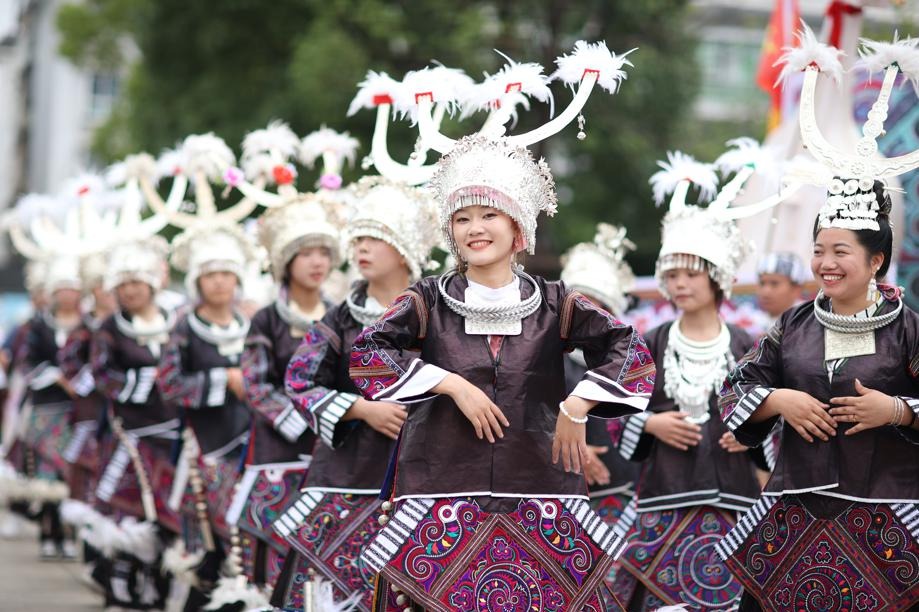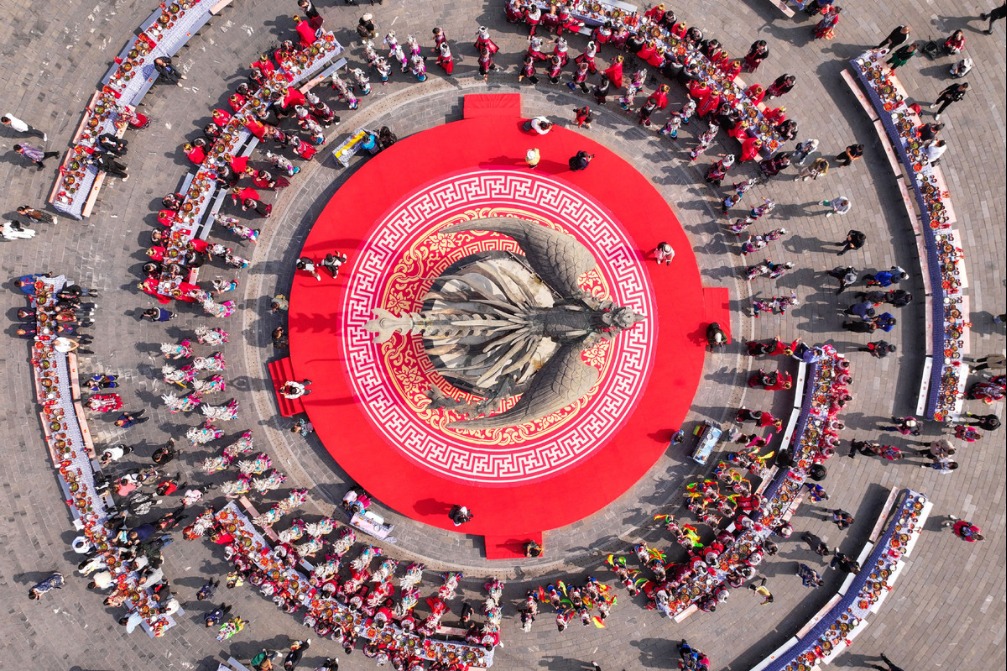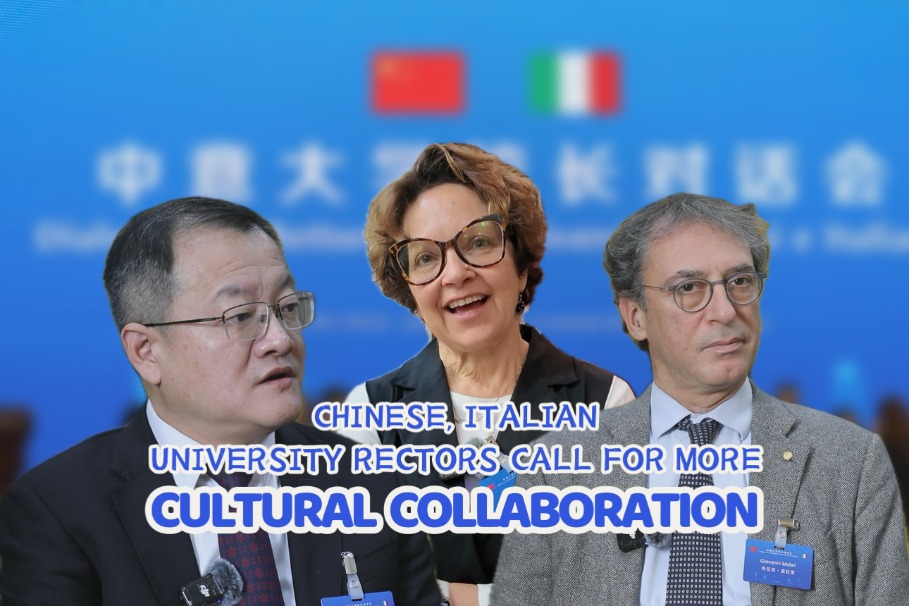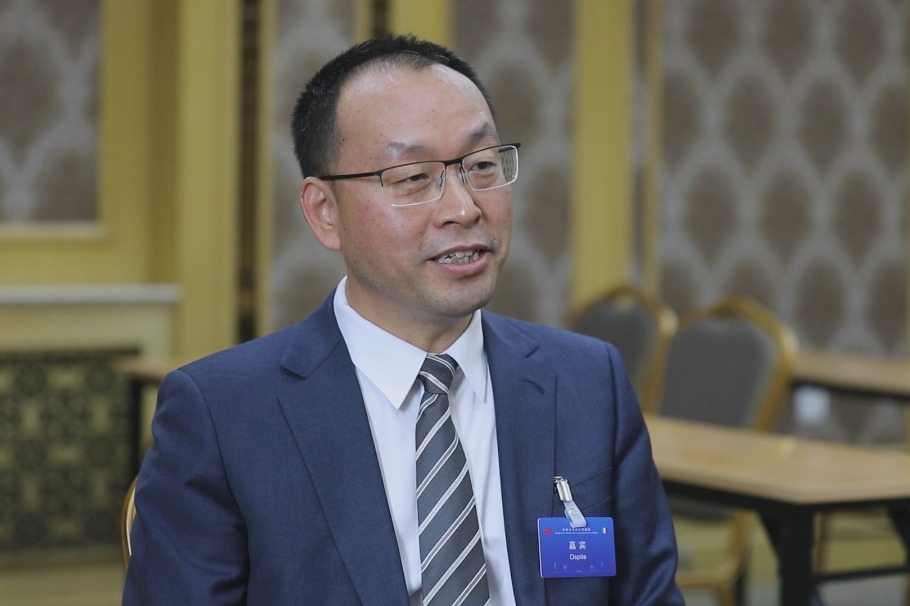Xi's Russia visit to strengthen global stability

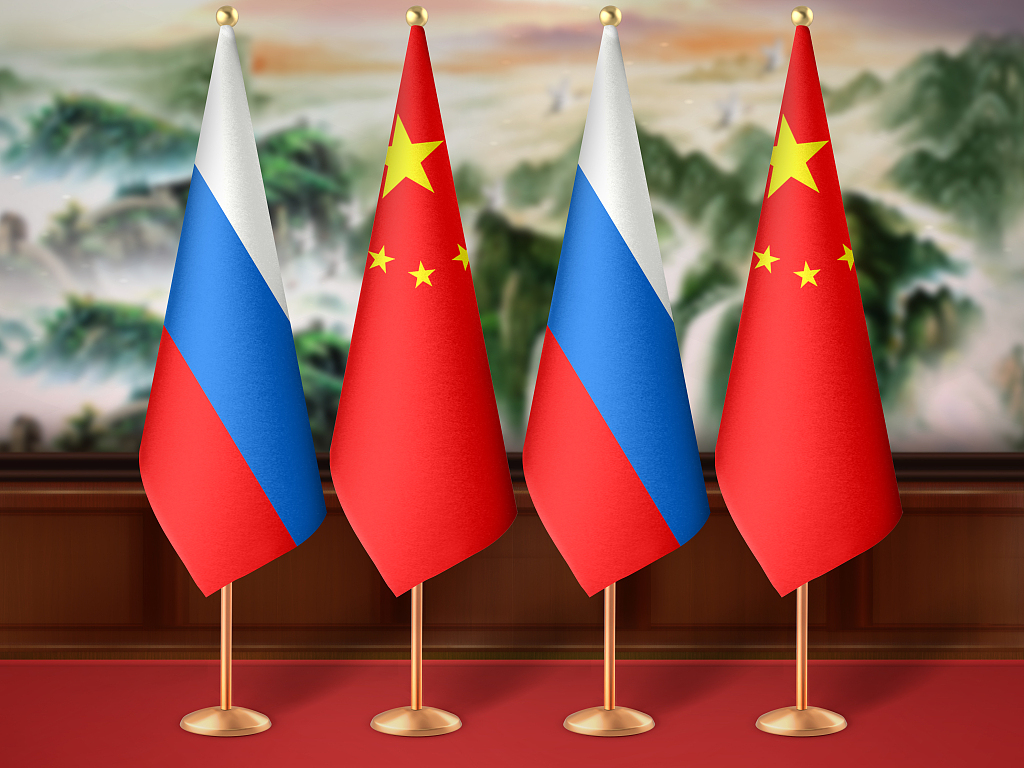
President Xi Jinping is scheduled to kick off a three-day visit to Russia on Monday that is expected to guide the high-level China-Russia relationship further forward and inject more stability into the complicated international situation. It is the second time that Xi has chosen Russia as the destination of his first overseas trip after being elected Chinese president, following his visit to the country in 2013.
"This fully demonstrates the profound personal friendship between Xi and his Russian counterpart Vladimir Putin as well as the high attention he attaches to bilateral ties in the new era," Zhang Hanhui, the Chinese ambassador to Russia, said in a recent joint interview with Chinese media.
During Xi's stay in Russia, he will meet with Putin and have discussions on China-Russia practical cooperation as well as international and regional issues of common concern.
The past decade has witnessed bilateral meetings between the two heads of state on 40 occasions, with strategic consensuses reached in areas including upgrading bilateral ties, safeguarding regional security and stability and building a community with a shared future for mankind.
During Xi's last visit to Russia in 2019, the two countries decided to elevate the China-Russia relationship to a Comprehensive Strategic Partnership of Coordination in the New Era.
"The two heads of state have maintained close contacts and exchanged views on bilateral cooperation and major international issues, which serve as the compass and anchor in developing China-Russia relations," ambassador Zhang said, calling the trip a milestone for bilateral ties in the new era.
Vasily Kashin, director at the Center for Comprehensive European and International Studies at the National Research University Higher School of Economics in Moscow, said the head-of-state diplomacy provides guidance for the two countries' governments at all levels to overcome difficulties and push forward cooperation in all fields.
He noted that bilateral trade has witnessed growth despite the global economic recession in recent years, and Chinese companies have become a dominant player in some sectors of the Russian market. "Take the automobile industry, for instance. Chinese car manufacturers are occupying more market share than ever. You see more Chinese-brand cars driving in the streets of Moscow, such as Haval, Cherry, Dongfeng and others," Kashin said.
He said bilateral cooperation is expected to become closer after the Chinese government optimized its COVID-19 response measures and lifted some restrictions on cargo transportation. Since then, many Russian companies have explored business opportunities and looked to opening branches in China.
Ivan Melnikov, first vice-chairman of Russia's State Duma, the country's Lower House, said that the head-of-state diplomacy is a new type of relationship, with both countries entering a new era and having an impact on the future of the world. "Under the guidance of the two leaders, Sino-Russian relations have risen to the highest level in the history of their development," said Melnikov, who is also the chairman of the Russia-China Friendship Association.
The association celebrated the 65th anniversary of its founding last year and received congratulatory letters from both Xi and Putin.
At present, the two governments are working on various projects including co-building an international space station on the moon and investing in nuclear power stations. Over 79 projects worth $161 billion are being discussed on both sides, according to Melnikov.
Xi's visit will definitely boost economic links between the countries and bring more practical projects, Melnikov said.
China and Russia have set an example of international relations that feature mutual strategic trust and neighborly friendship between major countries. Such a relationship does not target any third party, and neither will it be disturbed or threatened by any third party, experts said.
"The more turbulent the world is, the more important it is for China-Russia relations to move forward steadily," said Zhang, the Chinese ambassador.
No matter how the international situation changes, China-Russia ties will continue to move forward at a higher level under the strategic guidance of the two heads of state, he said.
Yury Tavrovsky, chairman of the Russian-Chinese Committee for Friendship, Peace and Development's Experts Commission, said Xi's visit is of paramount importance now that the West is waging a full-blown "Cold War" on a Western front while gearing up to spark another one in the East.
Noting that both Russia and China are major countries with global influence, Tavrovsky said the strengthening of strategic coordination and mutually beneficial cooperation between the two neighbors will not only be significant to the development of bilateral ties, but will also enhance global and regional peace and stability.
Li Yonghui, a researcher of Russian studies at the Chinese Academy of Social Sciences, said China and Russia have worked closely on the global stage to firmly oppose all kinds of hegemonism and power politics, Cold War mentality and bloc confrontations and suppression, while resolutely safeguarding national sovereignty, security and development interests.
"For China and Russia, to uphold true multilateralism means to promote greater democracy in international relations and push for fairer and more reasonable global governance in order to jointly address global challenges," Li said. The two countries have done this within the framework of international organizations such as the World Trade Organization, G20, BRICS nations, Asia-Pacific Economic Cooperation forum and others, she added.
- One day as a Shanghainese: Swiss teens' dive into local life
- Sangzhi building fire kills seven
- Wuzhou's Qilou Block draws crowds after renovations of iconic arcade buildings
- Tianzhou 8 cargo vessel lifts off toward space station
- Chinese scientists achieve major success in maize harvesting
- Shanghai showcases five years of 'people's city' development

















